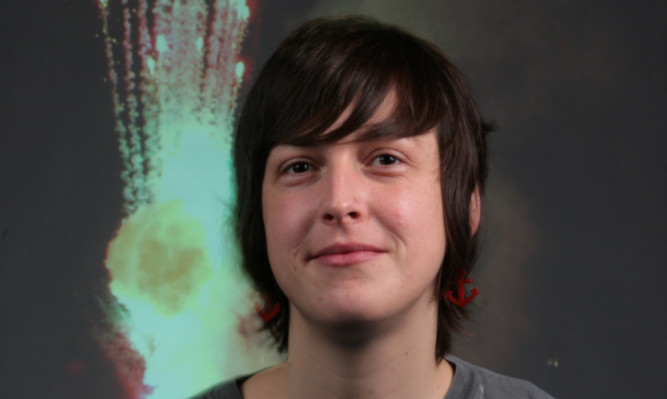Confusion still prevails over how £15,000 of public money granted to a Dundee artist will be spent, a month after her controversial project began.
The Glasgow Effect, an experiment that will see Ellie Harrison live in Glasgow for a year without leaving the city, launched on New Year’s Day.
Described as a “durational performance”, it aims to explore how an artist’s career, social life, family ties, carbon footprint and mental health would be affected by staying within the city’s boundaries.
Initially, Ellie revealed plans to donate the £15,000 to Dundee University, where she lectures, in exchange for a year’s paid leave to allow her to complete the project.
Creative Scotland has since confirmed such an outcome would go against its rules and said the £15,000 will go to Ellie herself.
This week The Courier contacted the organisation to clarify how the money would be allocated throughout the project.
Creative Scotland said the funding would “support Ellie’s creative practice in the city” but did not respond when asked to specify what this meant.
A spokesman said: “Ellie Harrison is a recognised artist with an MA with Distinction from the Glasgow School of Art.
“Ellie’s project met the criteria for Open Project Funding and is based on the premise that if society wishes to achieve global change then individuals have to be more active within their communities at a local level.
“In restricting herself to staying within the city boundaries she is keen to explore what impact this will have on her life and on her work as an artist with national and international commitments. Our funding will support Ellie’s creative practice in the city and we will be interested to see how the project progresses.”
The spokesman added: “The funds will not be paid to Duncan of Jordanstone College of Art and Design to cover the costs of her teaching post.
“This complies with our criteria for funding through the Open Project Funding route which states that it can be used to support ‘the time to research, develop or create work or content including artist’s bursaries to support practice development’.”
The Glasgow Effect has been accused of “exploiting poverty” and “mocking the city” due to the title, which refers to the poor health and low life expectancy of Glasgow residents.
The project has a blog page where the public can follow its progress but so far no updates, other than the artist’s funding application, have been posted.
When contacted, Ellie said she was planning a statement for later this month, “once everything is sorted out with the university and other things in the pipeline”.
Dundee University did not comment on the matter.
